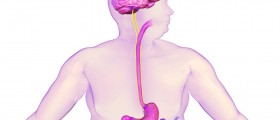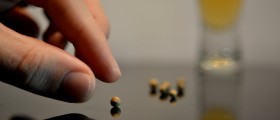Description
Not feeling hungry doesn’t sound like a big problem, and a lot of people are very likely to neglect this fact, which is, actually, a disorder. The chronic lack of feeling of hunger can appoint to some more serious health problems, such as the malign tumor or HIV.
The Homeopathic Treatment
So, the homeopathic remedies, in the case of appetite disorder, have already shown a lot of success. However, they must be used carefully, since the same doses of these remedies based on herbs would cause some dangerous contraindications in healthy individuals. Also, another beneficial characteristic of these natural remedies is that they don’t provide negative side effects, as the synthetically made ones do, of course, if they are used carefully and not excessively.

Anyway, every homeopathic remedy from this group of remedies has its purpose. They are taken depending on which symptom is the most prominent, and which symptoms are involved besides the basic ones. For example, if the loss of the feeling of hunger is followed by constipation, the remedy called Ignatia 30 must be prescribed by an experienced homeopath.
Or, if much gas is present, it is even better to use the remedy Lycopodium 30. Nevertheless, if the basic indicators of this condition are accompanied by weakness and apathy, nux vomica 30 is the best choice.
When the appetite doesn’t exist because of the possible worms in the gastrointestinal system, Natrum Phos and Sulph are the recommended remedies, depending on which type of worms are present. But, if the additional pain in the abdomen is felt and the anal opening itches, Cina 200 is the most effective remedy for dealing with the described problem. Also, in the cases of acidity in the throat, Nux Vomica should be used, and if the dryness of the mouth persists, Bryonia is the best solution.
The Loss of Appetite and the Psychological Problems
And, finally, it mustn’t be forgotten that anorexia and the loss of appetite are often related to some emotional problems, but homeopathic remedies help in dealing with those complex problems, too. For instance, if the patient suffers from some disrupted balance of hormones and feels a strong repulsion to the food in general, it should be treated by the use of the Sepia.
When someone suffers from depression, Pulsatilla can help a lot. However, if the depression is aggravated, Stapysagria is the best remedy. Also, the obsession about being slim is very common these days, and this disorder could be treated with Platinum metallicum, Carcinosin, or with Ignatia Amara.
- Alfalfa is a high-grade treatment for loss of appetite. Alfalfa helps tone up the appetite in a very natural way. Along with boosting the appetite, it also helps to provide mental and physical strength to the body. Alfalfa works well in patients who experience a loss of appetite accompanied by weight loss, loss of flesh and emaciation. In such cases, the medicine helps improve the appetite as well as gain weight. Alfalfa is also a suitable medicine for anorexia nervosa and loss of appetite with weakness, fatigue, and exhaustion.
- Antimonium Crudum and Psorinum are well indicated medicines for treating anorexia. These medicines help stimulate appetite after a serious illness. A patient needing Antimonium Crudum experiences a loss of appetite along with an aversion to every kind of food. But in some cases, the patient can eat acidic and sour things and has an aversion to all other food. Nausea and a bitter taste in the mouth are accompanying symptoms. Along with these features, the tongue feels thickly coated. Psorinum works well when there is a loss of appetite, but there is a constant thirst for water. Other symptoms include belching that tastes like rotten eggs. Psorinum is also useful for the loss of appetite and weakness arising after an acute disease. In such cases, Psorinum helps to improve appetite as well as provide strength to the body.
- Colchicum is another excellent treatment for loss of appetite. It helps to promote appetite in such cases. Colchicum is most helpful when nausea is present along with the loss of appetite. A person requiring Colchicum gets nauseous at the thought or smell of food. The patient feels hungry, but on smelling food, the appetite vanishes. If food is somehow taken, it seems tasteless. Colchicum helps to reduce nausea and stimulate the appetite.

















Your thoughts on this
Loading...